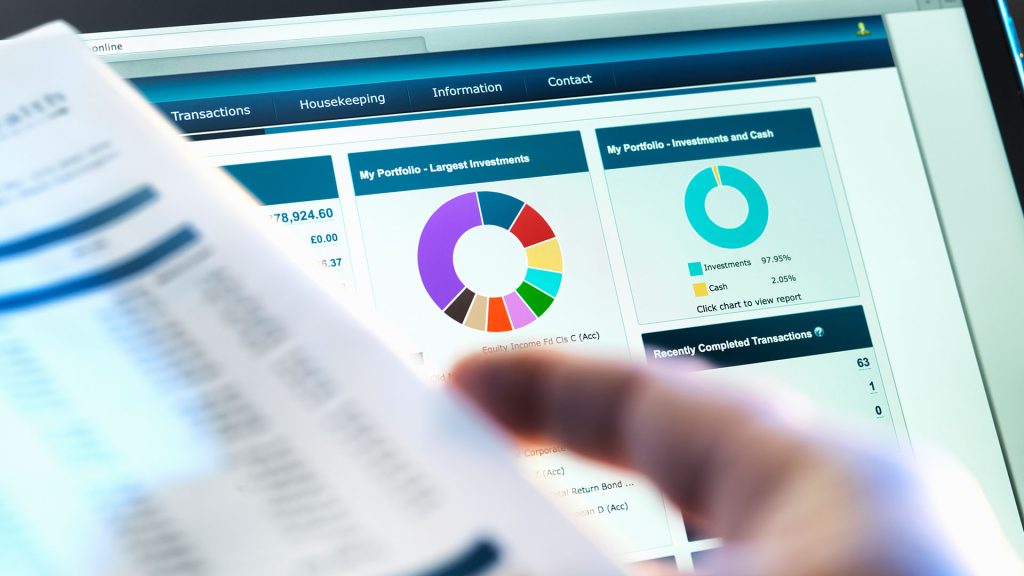Artificial Intelligence (AI) is rapidly transforming the travel industry, offering innovative solutions that enhance customer experiences, streamline operations, and improve decision-making. From personalized travel recommendations to efficient customer service, AI is playing a pivotal role in reshaping the way we travel. This article explores the various ways AI is revolutionizing the travel industry, supported by real-world examples and detailed insights.
Table of Contents
Introduction to AI in the Travel Industry
The integration of AI in the travel industry is enabling companies to offer more personalized and efficient services to travelers. By leveraging machine learning, natural language processing, and predictive analytics, travel companies can provide tailored experiences and optimize their operations.
Enhancing Customer Experience
Personalized Travel Recommendations
AI algorithms analyze user preferences, past travel behavior, and social media activity to offer personalized travel recommendations. This enables travelers to discover destinations, accommodations, and activities that match their interests.
TripAdvisor uses AI to provide personalized travel suggestions based on user reviews, search history, and preferences. By examining a user’s past behavior and preferences, TripAdvisor’s AI can suggest travel destinations, hotels, restaurants, and attractions that are most likely to appeal to them. This personalized approach not only enhances the travel experience for users but also increases engagement and satisfaction.
Another example is Skyscanner, which uses AI to analyze travel data and offer personalized flight recommendations. By leveraging machine learning algorithms, Skyscanner can predict the best times to book flights, ensuring travelers get the best deals. This not only saves money for travelers but also helps airlines optimize their pricing strategies.
AI-Powered Chatbots and Virtual Assistants
AI-powered chatbots and virtual assistants provide 24/7 customer support, answering queries, assisting with bookings, and offering travel advice. These tools enhance customer satisfaction by providing quick and accurate responses.
KLM Royal Dutch Airlines uses an AI-powered chatbot named BlueBot (BB) to assist customers with booking flights, providing travel information, and answering frequently asked questions. BlueBot can understand and respond to customer queries in multiple languages, making it a valuable tool for KLM’s global customer base. By automating routine tasks, BlueBot allows KLM’s customer service agents to focus on more complex issues, improving overall efficiency and customer satisfaction.
Similarly, Marriott International has introduced a chatbot named ChatBotlr, which allows guests to request services and information via their mobile devices. ChatBotlr can handle a wide range of requests, from ordering room service to providing information about local attractions. This AI-powered assistant enhances the guest experience by offering convenient and personalized service around the clock.
Predictive Analytics for Travel Planning
Predictive analytics helps travelers plan their trips by forecasting prices, weather conditions, and travel trends. AI models analyze historical data and current trends to provide accurate predictions, enabling travelers to make informed decisions.
Hopper uses AI to predict flight and hotel prices, helping travelers book at the optimal time for the best deals. Hopper’s predictive algorithms analyze billions of price points and trends to provide travelers with recommendations on when to book their flights and hotels. This not only helps travelers save money but also reduces the stress associated with planning a trip.
Another example is Google Flights, which uses AI to predict flight delays before they are officially announced. By analyzing historical flight data and current conditions, Google Flights can provide travelers with advance notice of potential delays, allowing them to make alternative arrangements if necessary. This proactive approach enhances the travel experience by reducing uncertainty and inconvenience.
Streamlining Operations
Smart Booking Systems
AI-powered booking systems streamline the reservation process by automating tasks such as inventory management, pricing, and customer communications. These systems improve efficiency and reduce the workload on human staff.
Expedia uses AI to optimize its booking platform, offering personalized search results and streamlined booking processes. Expedia’s AI-driven recommendation engine analyzes user preferences and booking history to provide tailored search results. This not only makes it easier for travelers to find the best options but also increases conversion rates for Expedia.
Additionally, AI-powered chatbots on Expedia’s platform can assist customers with booking changes, cancellations, and other inquiries, providing quick and efficient service. This automation reduces the burden on customer service agents and enhances the overall booking experience for travelers.
AI in Airport Security and Operations
AI enhances airport security by improving screening processes and identifying potential threats. AI-driven facial recognition systems expedite passenger processing and enhance security measures.
London Heathrow Airport employs AI-powered facial recognition technology to speed up passenger boarding and improve security. This technology uses machine learning algorithms to match passengers’ faces with their travel documents, ensuring a secure and efficient boarding process. By automating identity verification, Heathrow Airport can reduce wait times and improve the overall passenger experience.
AI is also used in security screening processes to identify potential threats more accurately. For example, the Transportation Security Administration (TSA) in the United States uses AI-powered algorithms to analyze X-ray images of luggage and identify suspicious items. This technology enhances security by providing more accurate and reliable threat detection.
Optimizing Flight and Route Scheduling
AI optimizes flight schedules and routes by analyzing weather conditions, air traffic, and historical data. This helps airlines minimize delays, reduce fuel consumption, and improve overall efficiency.
Delta Air Lines uses AI to optimize flight schedules and improve operational efficiency, reducing delays and enhancing the passenger experience. Delta’s AI-powered system analyzes a wide range of factors, including weather forecasts, air traffic control data, and historical flight performance, to create optimized flight schedules. This proactive approach helps Delta minimize disruptions and ensure on-time performance.
Similarly, Lufthansa uses AI to optimize its flight routes and reduce fuel consumption. By analyzing weather patterns, air traffic, and other factors, Lufthansa’s AI system can identify the most efficient flight paths, reducing fuel costs and environmental impact. This not only benefits the airline but also contributes to sustainability efforts in the aviation industry.
Improving Customer Service
Real-Time Assistance and Problem Resolution
AI provides real-time assistance to travelers by monitoring flights, weather conditions, and traffic, offering timely updates and solutions to potential issues. This proactive approach enhances customer satisfaction.
American Airlines uses AI to provide real-time flight updates and assistance, helping travelers manage their itineraries efficiently. By leveraging AI-powered systems, American Airlines can monitor flight statuses, weather conditions, and other factors in real time, providing passengers with timely updates and alternative travel options if necessary. This proactive approach helps minimize disruptions and ensures a smoother travel experience.
Similarly, United Airlines uses AI to provide personalized assistance to passengers. United’s AI-powered system can identify potential issues, such as missed connections or delays, and proactively offer solutions to affected passengers. This real-time assistance enhances customer satisfaction by addressing problems before they escalate.
Sentiment Analysis for Customer Feedback
AI-driven sentiment analysis tools analyze customer feedback from various sources, including social media, reviews, and surveys. This helps travel companies understand customer sentiment and improve their services.
Hilton Hotels uses AI to analyze guest feedback and reviews, enabling them to address issues and improve the guest experience. By leveraging sentiment analysis tools, Hilton can identify common themes and trends in guest feedback, allowing them to make data-driven improvements to their services. This proactive approach helps Hilton maintain high levels of customer satisfaction and loyalty.
Additionally, AI-driven sentiment analysis can help travel companies identify potential issues before they become widespread. For example, if a particular flight route receives consistently negative feedback, an airline can investigate and address the underlying issues to improve the overall travel experience.
AI in Marketing and Sales
AI enhances marketing efforts by delivering targeted advertisements and promotions based on user behavior and preferences. This increases the effectiveness of marketing campaigns and boosts conversion rates.
Booking.com uses AI to deliver personalized marketing messages and promotions, improving customer engagement and sales. By analyzing user behavior and preferences, Booking.com’s AI-powered marketing platform can create tailored advertisements and promotions that resonate with individual travelers. This targeted approach increases the likelihood of conversion and enhances the overall effectiveness of marketing campaigns.
Similarly, travel companies like Airbnb use AI to optimize their marketing strategies. By leveraging machine learning algorithms, Airbnb can analyze user data and identify the most effective marketing channels and messages for different customer segments. This data-driven approach helps Airbnb maximize the impact of its marketing efforts and drive bookings.
Dynamic Pricing Strategies
AI enables dynamic pricing strategies by analyzing market demand, competitor pricing, and booking patterns. This allows travel companies to adjust prices in real-time, maximizing revenue and competitiveness.
Airbnb uses AI-driven dynamic pricing tools to help hosts set competitive rates based on market conditions and demand. By analyzing factors such as local events, seasonal trends, and competitor pricing, Airbnb’s AI-powered pricing tool can recommend optimal rates for each listing. This dynamic pricing strategy helps hosts maximize their earnings and ensures that prices remain competitive.
Similarly, airlines use AI to implement dynamic pricing strategies for their flights. By analyzing booking patterns, demand fluctuations, and competitor prices, AI-powered systems can adjust ticket prices in real-time to maximize revenue. This data-driven approach helps airlines optimize their pricing strategies and remain competitive in the market.
Ethical Considerations and Challenges
Data Privacy and Security
The use of AI in the travel industry involves handling vast amounts of personal data, raising concerns about data privacy and security. Travel companies must implement robust measures to protect customer information and comply with data protection regulations.
Implementing GDPR-compliant data protection practices ensures that companies handle customer data responsibly and securely. Travel companies must be transparent about their data collection and processing practices, providing customers with clear information about how their data is used and stored. Additionally, companies must implement robust security measures to protect against data breaches and unauthorized access.
Bias and Fairness in AI Algorithms
AI algorithms can inadvertently introduce biases, leading to unfair treatment of certain customer groups. Ensuring fairness and transparency in AI systems is crucial for maintaining trust and providing equitable services.
To address these concerns, travel companies must regularly audit their AI algorithms to identify and mitigate potential biases. This involves analyzing the data used to train the algorithms and ensuring that it is representative and unbiased. Additionally, companies should implement fairness and transparency guidelines to ensure that their AI systems treat all customers equitably.
Real-World Examples of AI in the Travel Industry
1. Amadeus AI-Powered Travel Platform
Amadeus leverages AI to enhance its travel platform, providing personalized recommendations and optimized search results for travelers. The platform uses machine learning algorithms to analyze user preferences and behavior, ensuring a tailored experience. Read more
2. IBM Watson in Travel Industry
IBM Watson’s AI capabilities are used by various travel companies to analyze customer data and provide personalized recommendations. Watson’s natural language processing helps improve customer interactions and support. Read more
3. Travelport’s AI Solutions
Travelport uses AI to enhance its travel commerce platform, offering intelligent search and booking capabilities. AI-driven insights help travel agencies and suppliers optimize their services and pricing strategies. Read more
4. WayBlazer AI for Travel Recommendations
WayBlazer utilizes AI to provide personalized travel recommendations by analyzing traveler preferences and behavior. The platform helps travel companies enhance customer engagement and satisfaction. Read more
5. Sabre’s AI-Driven Travel Solutions
Sabre leverages AI to power its travel solutions, including intelligent retailing, dynamic pricing, and personalized offers. AI enhances the travel experience by providing relevant and timely information to travelers. Read more
6. ZOOM.AI for Business Travel
ZOOM.AI offers AI-powered solutions for business travel, automating travel planning and expense management. The platform uses AI to streamline booking processes and provide personalized travel itineraries. Read more
7. FLYR’s AI-Powered Revenue Management
FLYR uses AI to optimize airline revenue management by predicting demand and adjusting pricing strategies. The platform helps airlines maximize revenue and improve operational efficiency. Read more
8. Desti AI Travel Assistant
Desti is an AI travel assistant that helps travelers plan their trips by providing personalized recommendations and insights. The platform uses natural language processing to understand traveler preferences and deliver relevant suggestions. Read more
9. Pana AI for Corporate Travel
Pana offers AI-powered solutions for corporate travel, providing personalized travel planning and booking services. The platform uses machine learning to optimize travel itineraries and enhance the travel experience for business travelers. Read more
10. Hopper’s AI Predictive Pricing
Hopper’s AI algorithms analyze billions of flight and hotel prices to provide travelers with recommendations on the best times to book. The platform helps travelers save money by predicting price changes and offering personalized booking suggestions. Read more
11. Skyscanner’s AI Travel Insights
Skyscanner uses AI to provide travelers with personalized flight recommendations and insights. The platform’s machine learning algorithms analyze travel data to predict the best times to book and offer tailored suggestions. Read more
12. AirAsia’s AI-Powered Chatbot
AirAsia uses an AI-powered chatbot named AVA to assist customers with booking flights, providing travel information, and answering queries. The chatbot enhances customer service by offering quick and accurate responses. Read more
13. Trainline’s AI Ticketing System
Trainline uses AI to optimize its ticketing system, providing personalized travel recommendations and dynamic pricing. The platform’s AI algorithms analyze booking patterns and demand to offer the best prices to travelers. Read more
14. Kiwi.com’s AI Flight Search
Kiwi.com leverages AI to enhance its flight search capabilities, providing travelers with personalized recommendations and optimized itineraries. The platform’s AI-driven search engine analyzes a wide range of factors to deliver the best options. Read more
15. Hilton’s AI Room Service
Hilton uses AI to enhance its room service by analyzing guest preferences and offering personalized recommendations. The platform’s AI-driven insights help improve the guest experience and increase customer satisfaction. Read more
16. Priceline’s AI Travel Deals
Priceline uses AI to deliver personalized travel deals and promotions based on user behavior and preferences. The platform’s machine learning algorithms analyze booking patterns and demand to offer the best prices to travelers. Read more
17. Airbnb’s AI Host Assist
Airbnb uses AI to help hosts manage their listings and optimize pricing strategies. The platform’s AI-driven tools provide insights and recommendations to enhance the hosting experience and maximize earnings. Read more
18. Traveloka’s AI Trip Planning
Traveloka leverages AI to enhance its trip planning capabilities, providing personalized travel recommendations and itineraries. The platform’s AI algorithms analyze user preferences and behavior to deliver tailored suggestions. Read more
19. Lufthansa’s AI Flight Operations
Lufthansa uses AI to optimize its flight operations, including route planning, scheduling, and fuel management. The platform’s AI-driven insights help improve operational efficiency and reduce costs. Read more
20. Expedia’s AI Customer Support
Expedia uses AI-powered chatbots to provide 24/7 customer support, assisting travelers with booking changes, cancellations, and other inquiries. The platform’s AI-driven tools enhance the customer experience by offering quick and efficient service. Read more
Future Trends and Developments
The future of AI in the travel industry promises even more innovative solutions, such as enhanced virtual reality experiences for travel planning, autonomous vehicles for transportation, and advanced AI-driven personal assistants. These advancements will continue to transform the travel experience, making it more personalized, efficient, and enjoyable.
Enhanced Virtual Reality Experiences
Virtual reality (VR) is set to revolutionize travel planning by offering immersive experiences that allow travelers to explore destinations before booking. AI-powered VR platforms can create realistic simulations of travel destinations, helping travelers make informed decisions about where to go and what to do. This technology can also be used to enhance in-flight entertainment, providing passengers with immersive experiences during their journey.
Autonomous Vehicles for Transportation
AI-powered autonomous vehicles have the potential to transform transportation within the travel industry. Self-driving cars, buses, and shuttles can provide convenient and efficient transportation options for travelers, reducing the need for human drivers and minimizing the risk of accidents. Additionally, autonomous vehicles can optimize routes and reduce travel times, enhancing the overall travel experience.
Advanced AI-Driven Personal Assistants
AI-driven personal assistants are becoming increasingly sophisticated, offering travelers more personalized and efficient support. These assistants can provide real-time travel updates, make recommendations based on individual preferences, and even handle complex tasks such as rebooking flights or changing hotel reservations. As AI technology continues to advance, these personal assistants will become even more capable, further enhancing the travel experience.
Conclusion
AI is undeniably transforming the travel industry, offering unprecedented opportunities for enhancing customer experiences, streamlining operations, and improving decision-making. From personalized travel recommendations and efficient customer service to optimized flight scheduling and dynamic pricing, AI is revolutionizing the way we travel. As the technology continues to evolve, its impact on the travel industry will only grow, paving the way for more innovative and efficient travel solutions.
For more insights and updates on the latest in AI and travel, visit TGI.





